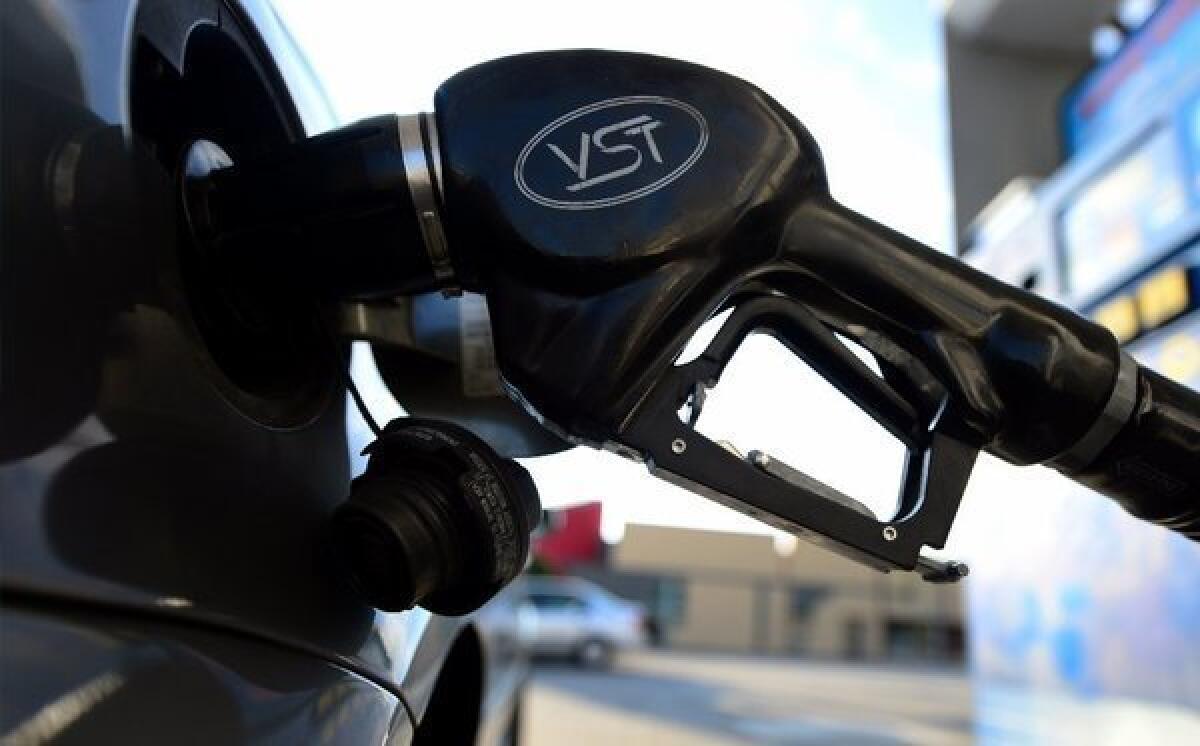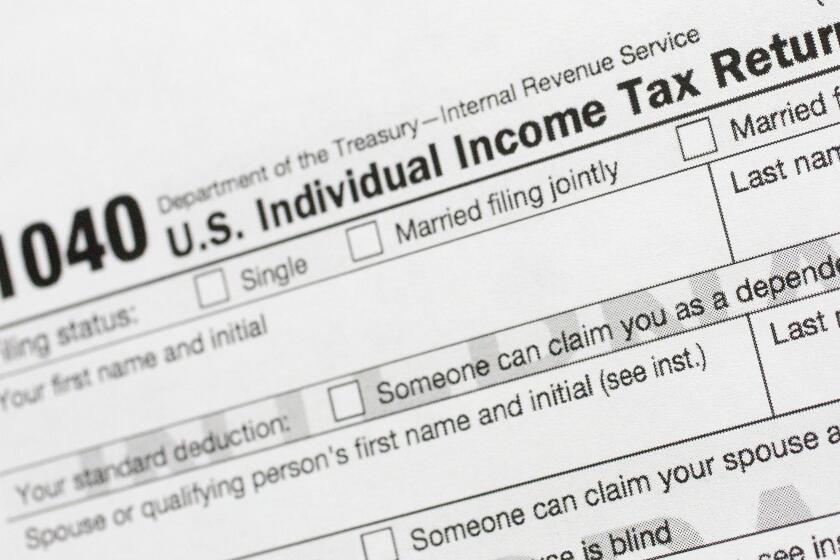A regulation that might actually reduce California gasoline prices

California’s strict low-carbon fuel standard could help reduce gasoline prices in the state, the opposite of what many have predicted, by encouraging the use of a relatively cheap and relatively clean U.S. crude oil, some experts now say.
The standard will require fuel producers -- like refineries -- to lower the carbon intensity of the products they sell here by 10% by 2010 in less than seven years. To comply, California refineries might also have to stop using some of the crude oil they use now.
That includes some oil that comes from California that is considered too dirty, from a carbon intensity standpoint. Carbon intensity is a measure of how much carbon dioxide is spewed into the atmosphere during oil production.
PHOTOS: Top 10 cars with lowest cost per mpg
To date, some of the main arguments against the California low-carbon standard have been that it could raise the state’s already high gasoline prices, force refiners out of business and even harm the economy by requiring the importation of more foreign oil.
Or, maybe not.
Platts, the New York-based energy prices and news publication, points out that new West Coast railroad terminals planned for the near future will increase the logistical capacity to transport oil to California from one of the nation’s oil boom states.
That’s the Bakken oil field in North Dakota. “And, in a twist,” Platts says, “Bakken crude has been given a relatively low carbon intensity rating.”
Platts isn’t willing to comment on the potential effect on gasoline prices, but it does say Bakken crude is considered clean enough to help the state reach its 2020 standard.
For California drivers, the good news is this: Bakken crude over the last two years has sold for between $4 and $28 a barrel less than the average barrel of U.S. oil sold on the New York Mercantile Exchange.
Compared with the price of the foreign crude oil California has imported over the years, the price difference is even greater; Bakker oil has been lower by $14 to $38 a barrel.
“The use of Bakken crude in California should exert downward pressure on gasoline prices in California,” said Tom Kloza, chief oil analyst for the Oil Price Information Service.
Amy Myers Jaffe, executive director of energy and sustainability at UC Davis, said this also throws cold water on the argument that California’s environmental standards will automatically mean closed refineries and higher prices.
“There’s no reason to think that’s going to happen,” Myers Jaffe said. “They won’t be going out of business.”
ALSO:
Mercedes-Benz releases crossover concept
You’re telling me lies: husbands keeping tickets, accidents secret
California aftermarket: Gale Banks, pimping rides and tweaking Humvees-video chat
More to Read
Inside the business of entertainment
The Wide Shot brings you news, analysis and insights on everything from streaming wars to production — and what it all means for the future.
You may occasionally receive promotional content from the Los Angeles Times.











